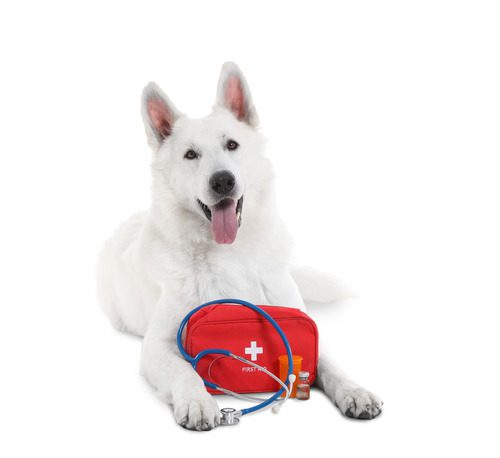Lyme Disease in Dogs: A Complete Guide for Pet Owners
Discovering that your dog may be at risk of Lyme disease can be concerning. Lyme disease is transmitted to dogs through the bite of infected ticks. Primarily found in wooded, grassy areas, the risk of Lyme disease can affect any dog that spends time outdoors. This guide is designed to offer pet owners detailed insights into the symptoms, diagnosis, treatment, and prevention of Lyme disease in dogs. At Emergency Veterinary Care Centers, we’re committed to providing you with the information needed to keep your pet healthy and happy. If you have concerns about Lyme disease and your dog, we encourage you to call one of our locations for expert advice and care.

Understanding Lyme Disease in Dogs
Lyme disease is more than just a tick-borne illness; it’s a complex condition that can affect multiple organs in your pet’s body, including the joints, heart, and nervous system. When a tick carrying Lyme disease bites a dog, the bacterium is transmitted into the bloodstream, potentially leading to a range of symptoms. It’s crucial for pet owners to understand the basics of this disease, including how it’s transmitted, the common signs to watch for, and why prompt treatment is essential for the health of their dog.
Symptoms of Lyme Disease in Dogs
Recognizing the signs of Lyme disease early can significantly impact your dog’s recovery process. Symptoms can vary widely from one dog to another but often include:
- Fever
- Lethargy
- Swollen joints or lameness
- Loss of appetite
- Swollen lymph nodes
It’s important to note that symptoms may not appear until several months after infection. If you notice any of these signs in your dog, especially after they have been in a tick-prone area, it’s crucial to seek veterinary care immediately.
Diagnosis and Treatment
Diagnosing Lyme disease involves a thorough examination by a veterinarian, including blood tests that can detect the presence of antibodies against the Lyme bacterium. Early detection plays a critical role in the successful treatment of Lyme disease. Treatment typically involves a course of antibiotics, which can last for several weeks or more. In addition to antibiotics, your veterinarian may recommend pain relievers to help manage joint pain associated with the disease.
Preventing Lyme Disease in Dogs
Prevention is the best strategy against Lyme disease. Protecting your dog involves several key steps:
- Regular tick checks after outdoor activities
- Use of tick preventatives as recommended by your vet
- Vaccination against Lyme disease, if advised by your vet and if you live in a high-risk area
Taking these preventive measures can significantly reduce your dog’s risk of contracting Lyme disease and can help keep them safe and healthy.
Protecting Your Dog From Lyme Disease
Lyme disease in dogs is a serious condition that requires prompt attention and care. By understanding the risks, recognizing the symptoms, and taking preventive measures, you can help protect your pet from this disease. At Emergency Veterinary Care Centers, our team is ready to provide your dog with the care they need, from diagnosis to treatment and beyond. If you’re concerned about Lyme disease or if your dog is showing signs of illness, call one of our locations. Together, we can ensure your dog receives the best possible care and enjoys a healthy, happy life.
Recent Posts
Parvo in Dogs: What it is, Symptoms and How to Protect Your Pet
Parvo in Dogs: What it is, Symptoms and How to Protect Your Pet Parvovirus in dogs, commonly…
6 Common Pet Emergencies in Westville, IN
6 Common Pet Emergencies in Westville, IN When your pet faces an emergency, knowing what to expect…
My Dog Ate a Corn Cob, What Should I Do?
My Dog Ate a Corn Cob, What Should I Do? Discovering your dog has eaten a corn…
What To Know about Chocolate Poisoning in Cats and How to Protect Them
What To Know about Chocolate Poisoning in Cats and How to Protect Them Chocolate is a treat…
My Dog Has Kennel Cough – Is This an Emergency?
My Dog Has Kennel Cough – Is This an Emergency? When your dog starts coughing, it can…






